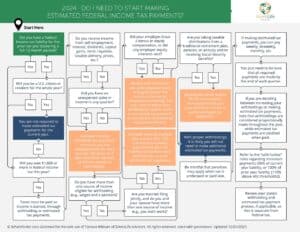In most cases, GreenLife’s new financial planning clients either have no estate plan or their existing plan is outdated. Many new clients learn they should have an estate plan once we begin the financial planning process. Estate planning is a crucial aspect of comprehensive financial management that everyone should prioritize, not just the ultra-wealthy or older people, which is a common misconception.
Estate planning is the legal process of determining who will inherit your money, property, and other assets after you pass away. It also outlines who will make medical and financial decisions on your behalf if you become incapacitated and unable to make those choices yourself. Anyone with assets, dependents, or wishes for the distribution of their estate can benefit tremendously from having a solid plan in place.
Scary Scenarios
Consider some of the potentially scary scenarios that can unfold without proper estate planning:
- An ex-spouse inherits most of your assets, even if that was not your intention.
- The court decides who will raise your minor children rather than you making that critical choice yourself.
- Your college-aged child inherits a large sum of money without any restrictions or guidance on managing it responsibly.
- The probate process makes all the details of your estate, including assets, liabilities, and personal information, publicly available.
- Your heirs must navigate a time-consuming and costly probate process to access their inheritance.
The right time to start estate planning is now, regardless of age or net worth. Taking proactive steps to outline your wishes can provide invaluable peace of mind for yourself and your loved ones. At our financial planning practice, we work closely with clients to ensure their estate plans are comprehensive, up-to-date, and aligned with their long-term goals. We also can provide resources to get you started.
Documents
Do you have the most essential estate planning documents in place?
- Will: This legally binds your wishes to distribute your assets and property after you pass away.
- Durable Power of Attorney: This designates someone to make financial decisions on your behalf if you become incapacitated.
- Healthcare Directive: This outlines your preferences for medical treatment and end-of-life care.
- Trust: This can help avoid probate and ensure your assets are distributed according to your wishes.
Even if you have these documents in place, you must ensure they reflect your financial situation and current tax regulations.
Please don’t wait until it’s too late to formulate or update an estate plan. It’s one of the most important financial decisions you can make.




